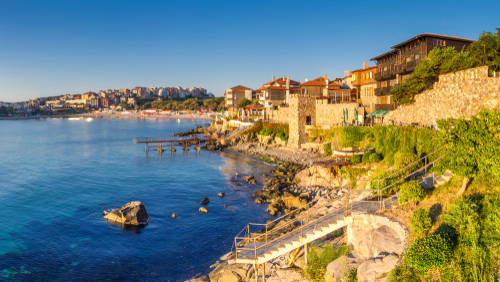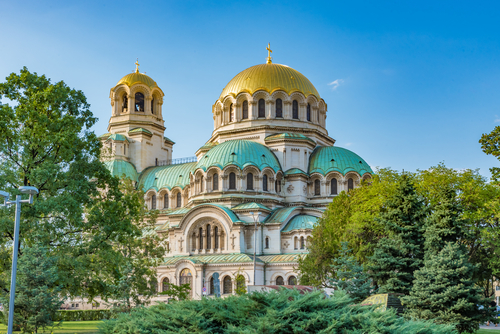
Bulgaria is a gorgeous country on the western part of the Black Sea. Its neighbouring countries include Romania in the north, Greece in the south, Serbia in the northwest, Macedonia in the southwest, and Turkey in the southeast. The area is popular for its stunning beaches, magnificent churches, thrilling winter activities, and breathtaking hiking opportunities.
If this is your first time to go to Bulgaria, here are a couple of things you need to know first book your flight:
- Find Out If You Need a Visa
While Bulgaria may be a part of the European Union (EU), it’s not part of the Schengen Area. Countries such as Austria, France, Germany, Iceland, Norway, Sweden, and Switzerland are part of this treaty and agreed to abolish internal border checks for individuals with a special visa.
Schengen visa holders can enter the country for up to 90 days. US citizens also don’t need a visa to visit Bulgaria as long as your passport is valid for at least three months from the expected date of departure from the country. Check out this passport guide for US travelers for more information on how to update your travel document.
- Don’t Use Euro
If you’re planning your Euro trip and thinking about stopping over at Bulgaria, you should know that the shops and restaurants do not use euro but Bulgarian lev (BGN), more commonly known as lev. What you should really know about is that this currency has a fixed exchange rate to the euro where 1 euro is equivalent to 1.95583 leva.
- Visit the Churches
Even if you’re not an overtly spiritual person, the churches in Bulgaria are a must-see because of their architectural beauty. The country’s main religion is Eastern Orthodox Christianity. Protestantism, Roman Catholicism, and Islam also have followings in the nation.
These are the churches you must visit:
- Alexander Nevsky Cathedral – Located at Bulgaria’s capital, Sofia, this cathedral takes the name of Alexander II, the patron saint of the Russian Emperor during the Russo-Turkish War in 1878.
- Saint Nicholas Church – Also known as the Russian Church, it is also found in Sofia and became famous for the intricate design of its exterior. Legend has it that writing your wish on a piece of paper and visiting the crypt will make your desire come true.
- Saint Sofia – This is the oldest church in the capital and serves as the inspiration for the Bulgarian city’s name.
- Constantine and St. Helen Church – Located at Plovdiv, about an hour’s drive from Sofia, the church is known for its well-preserved, vibrant murals.

- Know How to Commute
Getting around Bulgaria can be done through public transportation such as taxis, buses, and trains.
Here are some tips when taking public transportation:
- Taxis – Check the operator and make sure that the company is licensed to avoid being scammed. As with any other country, some taxi drivers are not honest with their rates so that they can charge tourists more.
- Buses – If you’re going to another city, you can go by bus to enjoy the views along the way. This mode of transportation is also the most comfortable and fastest way to cross cities or towns.
- Trains – While trains in Bulgaria are not as new as other countries, their networks still allow you to reach other cities quickly. You can book your tickets online along with a bicycle ticket, too.
- Reprogram What You Know
In any country, there will be some different gestures or practices that may confuse you. In Bulgaria, you will need to reprogram the way you think about what shaking your head means because they do that to indicate agreement. To clarify, they shake their head for yes and, conversely, nod for no.
Pro tip: if you find yourself perplexed over what the other person is saying, always ask for verbal confirmation and try not to focus too much on their gestures as Bulgarians make a lot of motions when talking. They also tend to talk loud when they’re excited about the topic.
Conclusion
For first-time tourists, it’s always good to do your research on the country you’re planning to visit especially if it has an entirely different language and culture from yours. This way, you know what to expect and you can prepare your budget and accommodation. Learn some common phrases as well to make interacting with the locals much more manageable.

Leave a Reply